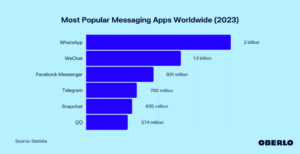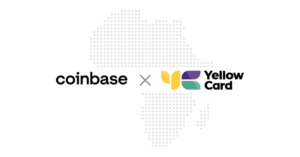
- Blockchain technology was initially created to support cryptocurrencies like Bitcoin.
- Government operations, cloud storage, real estate, digital advertising, intellectual property, sharing economy services, and charity and aid organizations all have the potential to benefit from blockchain.
- As blockchain adoption continues to grow, we can expect to see increased efficiency, transparency, and trust.
Its decentralized and secure nature makes it appealing for various applications of Blockchain technology beyond finance. Blockchain technology was initially created to support cryptocurrencies like Bitcoin and has the potential to disrupt many industries, but which ones will likely see blockchain disruption next via decentralization and transparency? The list includes government, cloud storage, real estate, digital advertising, intellectual property, sharing economy services (e.g., Uber and Airbnb), and charity and aid organizations. Each of these sectors stands to benefit from the unique features that blockchain offers, such as transparency, security, and decentralization.
Government
Governments worldwide are slowly but steadily recognizing the potential of blockchain technology to enhance transparency, security, and efficiency in various processes through decentralization. Here are some critical areas within government operations that are ripe for blockchain disruption:
Identity Verification
Blockchain can provide a robust solution for digital identity verification. Citizens could have a secure and immutable digital identity that eliminates the need for multiple usernames and passwords. This could streamline voting, government benefits, and access to government services.
Voting Systems
The tamper-proof nature of blockchain makes it an excellent candidate for secure and transparent voting systems. It could eliminate issues related to voter fraud and manipulation, ensuring the integrity of the democratic process.
Supply Chain Tracking
Governments can use blockchain to track the movement of goods and ensure their authenticity. This is particularly valuable in border control, drug regulation, and following the origin of food products.
Land Registry
Property records and land registry systems can benefit from blockchain’s decentralization, transparency, and security. Fraudulent land claims and disputes over property ownership could be significantly reduced by using blockchain technology.
Cloud Storage
The cloud storage industry has already seen some blockchain-based startups entering the market, offering a decentralized and secure alternative to traditional cloud storage providers. Key advantages of using blockchain for cloud storage include:
Security
Data stored on the blockchain is inherently secure and encrypted. Users have control over their data, reducing the risk of data breaches and unauthorized access.
Decentralization
Blockchain-based cloud storage platforms can leverage the computing power of network participants, which is distributed globally. This reduces the reliance on centralized data centers and minimizes the risk of data loss due to server failures or cyberattacks.
Transparency
Users can easily verify the integrity of their data, as all transactions and modifications are recorded on a public ledger. This adds an extra layer of trust and accountability.
Real Estate
The real estate industry is notorious for its complex and often opaque processes. Blockchain disruption may occur in this sector in the following ways:
Property Transactions
Blockchain can streamline property transactions by reducing the need for intermediaries, such as banks, real estate agents, and title companies. Smart contracts can automate the process, ensuring secure and transparent transactions.
Property Ownership
Blockchain can provide a secure and unforgeable record of property ownership. This would significantly reduce the risk of fraudulent property claims and title disputes.
Fractional Ownership
Blockchain can facilitate fractional ownership, making real estate investments more accessible to a broader range of investors. It can tokenize properties and enable investors to buy shares in real estate assets.
Digital Advertising
Digital advertising faces various challenges, including ad fraud, lack of transparency, and inefficient intermediaries. Blockchain disruption may occur through solutions to these issues:
Ad Fraud Prevention
Blockchain can create a transparent and tamper-proof ledger of ad impressions and clicks. This makes it difficult for fraudsters to manipulate the data and inflate ad performance metrics.
Micropayments and Content Monetization
Blockchain can enable direct micropayments between content creators and consumers, reducing the influence of intermediaries. This empowers content creators and rewards them fairly for their work.
Data Privacy
Blockchain can give users more control over their data, allowing them to choose who can access their information and how it is used for targeted advertising.
Intellectual Property
Protecting intellectual property rights is a critical concern for creators and innovators. Blockchain disruption is possible in the following areas:
Copyright Management
Blockchain can create a decentralized and immutable record of copyright ownership. Artists, writers, and inventors can easily prove their ownership and enforce their rights.
Royalty Payments
Smart contracts on the blockchain can disrupt royalty payments, ensuring that creators receive fair compensation for using their work.
Content Authentication
Blockchain can be used to verify the authenticity of digital content, such as art, music, and videos. This reduces the risk of plagiarism and counterfeiting.
Sharing Economy (Uber and Airbnb)
Sharing economy platforms, like Uber and Airbnb, have transformed how people access transportation and accommodation thanks to decentralization. Blockchain can enhance these services by:
Trust and Verification
Blockchain can provide a secure and immutable record of user reviews and ratings, making it easier for users to trust the platforms and the people they interact with. This will undoubtedly disrupt the status quo.
Identity Verification
Blockchain-based digital identities can help verify the identity of service providers and users, improving safety and security.
Direct Payments
Using blockchain and cryptocurrencies, sharing economy platforms can facilitate direct and peer-to-peer payments, reducing transaction costs and delays.
Charity and Aid
The charity and aid sector is another industry that can benefit from blockchain’s transparency and efficiency:
Donation Tracking
Blockchain can provide a transparent ledger of donations, allowing donors to track their contributions and ensure that funds reach their intended recipients.
Supply Chain Management
In humanitarian aid, blockchain can track the delivery of aid supplies, ensuring they reach their destination and are distributed to those in need.
Trust and Accountability
Blockchain can disrupt by building trust between donors and aid organizations by providing a transparent record of how funds are used.
The potential of Blockchain Technology
Furthermore, blockchain technology will disrupt many industries thanks to its transparency, security, and decentralization. Additionally, government operations, cloud storage, real estate, digital advertising, intellectual property, sharing economy services, and charity and aid organizations all have the potential to benefit from blockchain’s innovative capabilities. Moreover, as blockchain adoption grows, we expect to see increased efficiency, transparency, and trust in these sectors, ultimately leading to improved services and greater economic empowerment. In the next few years, it will be an exciting time as these industries adapt and leverage the power of blockchain to usher in a new era of innovation and efficiency.
- SEO Powered Content & PR Distribution. Get Amplified Today.
- PlatoData.Network Vertical Generative Ai. Empower Yourself. Access Here.
- PlatoAiStream. Web3 Intelligence. Knowledge Amplified. Access Here.
- PlatoESG. Carbon, CleanTech, Energy, Environment, Solar, Waste Management. Access Here.
- PlatoHealth. Biotech and Clinical Trials Intelligence. Access Here.
- Source: https://web3africa.news/2023/11/03/news/blockchain-disruption-industries-next-in-line-for-decentralization-and-transparency/
- :has
- :is
- a
- access
- accessible
- accommodation
- accountability
- Ad
- adapt
- Additionally
- Adds
- Adoption
- advantages
- Advertising
- agents
- Aid
- Airbnb
- All
- All Transactions
- Allowing
- already
- alternative
- an
- and
- Another
- appealing
- applications
- ARE
- areas
- Art
- Artists
- AS
- Assets
- authenticity
- automate
- Banks
- BE
- benefit
- benefits
- between
- Beyond
- Bitcoin
- blockchain
- blockchain adoption
- blockchain technology
- blockchain-based
- border
- breaches
- broader
- Building
- but
- buy
- by
- CAN
- candidate
- capabilities
- Centers
- centralized
- chain
- challenges
- Charity
- Choose
- Citizens
- claims
- Cloud
- cloud storage
- Companies
- Compensation
- complex
- computing
- computing power
- Concern
- Consumers
- content
- content creators
- continues
- contracts
- contributions
- control
- copyright
- Costs
- could
- counterfeiting
- create
- created
- creators
- critical
- cryptocurrencies
- cyberattacks
- data
- Data Breaches
- data centers
- data loss
- Decentralization
- decentralized
- delays
- delivery
- democratic
- destination
- difficult
- digital
- digital advertising
- Digital Content
- digital identity
- digital identity verification
- direct
- disputes
- Disrupt
- Disruption
- distributed
- donations
- donors
- drug
- due
- e
- each
- easier
- easily
- Economic
- economy
- efficiency
- eliminate
- eliminates
- empowerment
- empowers
- enable
- encrypted
- enforce
- enhance
- ensure
- ensuring
- entering
- Era
- estate
- excellent
- exciting
- expect
- extra
- faces
- facilitate
- fair
- fairly
- Features
- few
- finance
- following
- food
- For
- fractional
- fraud
- fraudsters
- fraudulent
- from
- funds
- Give
- Globally
- goods
- Government
- greater
- Grow
- Grows
- Have
- help
- here
- How
- HTTPS
- Humanitarian
- Humanitarian Aid
- identities
- Identity
- Identity Verification
- immutable
- improved
- improving
- in
- include
- includes
- Including
- increased
- industries
- industry
- inefficient
- influence
- information
- inherently
- initially
- Innovation
- innovative
- innovators
- integrity
- intellectual
- intellectual property
- intended
- interact
- intermediaries
- Inventors
- Investments
- Investors
- issues
- IT
- ITS
- Key
- Lack
- Land
- layer
- leading
- Ledger
- Leverage
- like
- likely
- Line
- List
- loss
- MAKES
- Making
- Manipulation
- many
- May..
- Metrics
- micropayments
- minimizes
- Modifications
- more
- Moreover
- movement
- multiple
- Music
- Nature
- Need
- network
- New
- next
- notorious
- of
- offering
- Offers
- often
- on
- ones
- opaque
- Operations
- or
- organizations
- origin
- over
- ownership
- participants
- particularly
- Passwords
- payments
- peer to peer
- People
- performance
- Platforms
- plato
- Plato Data Intelligence
- PlatoData
- possible
- potential
- potential of blockchain
- power
- process
- processes
- Products
- properties
- property
- Property Rights
- Prove
- provide
- providers
- providing
- public
- range
- ratings
- reach
- real
- real estate
- receive
- recipients
- recognizing
- record
- recorded
- records
- reduce
- Reduced
- reduces
- reducing
- registry
- Regulation
- related
- reliance
- Reviews
- Rewards
- rights
- Risk
- robust
- royalty
- Safety
- Safety and Security
- sector
- Sectors
- secure
- security
- see
- server
- service
- service providers
- Services
- Shares
- sharing
- significantly
- Slowly
- smart
- Smart Contracts
- solution
- Solutions
- some
- stands
- Startups
- Status
- steadily
- storage
- stored
- Storj
- streamline
- such
- supplies
- support
- Systems
- tamper-proof
- targeted
- Technology
- Thanks
- that
- The
- their
- Them
- These
- they
- this
- those
- Through
- time
- Title
- to
- tokenize
- track
- traditional
- transaction
- transaction costs
- Transactions
- transformed
- Transparency
- transparent
- transportation
- true
- Trust
- Uber
- Ultimately
- unauthorized
- undoubtedly
- unique
- use
- used
- User
- user reviews
- users
- using
- Valuable
- various
- Verification
- verify
- via
- Videos
- voter
- Voting
- was
- ways
- we
- webp
- which
- WHO
- will
- with
- within
- Work
- worldwide
- would
- writers
- years
- zephyrnet













